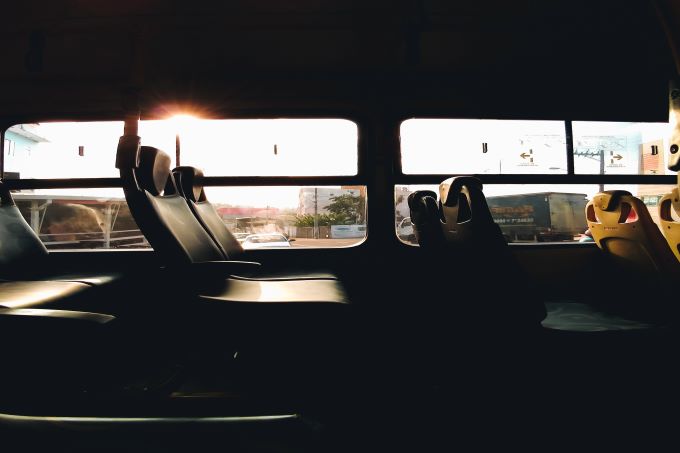Dr Susan Kenyon considers the long-term environmental impact of the ‘super-spreader narrative’ surrounding public transport.
Public transport is facing a bit of an image problem.
For more than two months now, we have been in lockdown, travelling as little as possible. Initially, the message was clear: movement spreads the virus; reducing movement will help to stop the virus from spreading. Stay at home – do not travel – save lives.
As the lockdown has lifted, movement is permitted. We no longer have to stay at home to save lives. We can walk; we can cycle; we can drive. But one thing is very clear: we should not use public transport. In fact, on 14 May, the Transport Secretary, Grant Shapps, stated that:
‘…it is our civic duty to avoid public transport’.
Gradually, since we became aware of Covid-19 at the start of the year, a narrative has developed in which public transport, rather than the virus, is the problem. Public transport has been depicted as a ‘super-spreader’ – the modern-day equivalent of Typhoid Mary.
This is a real problem for the hoped-for green recovery; for the hypothesised ‘new normal’ in which we travel less and, when we do travel, we travel by sustainable modes.
Infrastructure changes to make walking and cycling easier, such as those being implemented in London, alongside funding for active travel for local authorities outside of London, are welcome. People will be more able to cycle and more willing, too, if they see others cycling and if they see less traffic. However, infrastructure is only one factor influencing why people travel as they do.
As I have stated in a previous blog, travel behaviour change is dependent upon people’s ability and willingness to change. For most of us, our ability to change to walking or cycling, plus our willingness to do so, are limited. We must remember that there are people who can’t or won’t walk or cycle; that there are activities that people can’t access by walking or cycling; that, for most of us, our built environment and the patterns of our daily lives make walking and cycling impossible.
If you are interested in these issues, why not check out our Politics programme, where I teach ‘Transport, Politics and Society’?
So, what do we do if we can’t walk or cycle? In the same interview, Shapps stated:
‘… if you can’t walk or cycle but you do have access to a car, please use it, rather than travelling by bus, train or tram’.
And herein lies the problem. Public transport is portrayed as such a problem that, contrary to all environmental and transport policy pre-Covid-19, we are being actively encouraged to use our cars. And if there is more car use, people will once again be less inclined to walk, or cycle. The positive behaviour change towards active travel, that so many crave, will be undone.
Of course, we are in the middle of a global health emergency. Once the virus is under control, the government will undoubtedly reverse this message. But I fear that the ‘super-spreader narrative’, which has been developed by the government and seized upon by the press, will have done irreparable damage to the reputation of public transport.
It is essential to act now, to begin to rehabilitate public transport.
- Subtle changes to government messaging could promote the positive actions that our transport companies are taking to make our public transport safer – cleaning, social distancing.
- Good news stories in the press could focus on how public transport is connecting communities in this isolating time.
- Local authorities could begin to develop their ‘open for business’ public transport messaging, for post-Covid times.
Everything that we know about travel behaviour and behaviour change tells us that public transport is central to a green recovery. But we must act now, to rehabilitate the reputation of public transport, so that it can play its part.
Dr Susan Kenyon is a Faculty Director of Learning and Teaching and Principal Lecturer in Transport, Politics and Society at CCCU. She has studied transport and travel behaviour since 1998 and has published extensively in the area. Her module Transport, Politics and Society is open to second year students studying Politics and International Relations. The module considers the challenges of social exclusion and sustainable development in transport planning and has been carefully designed to integrate work related learning opportunities for students.
 Politics
Politics Laura Cashman
Laura Cashman 1366
1366


